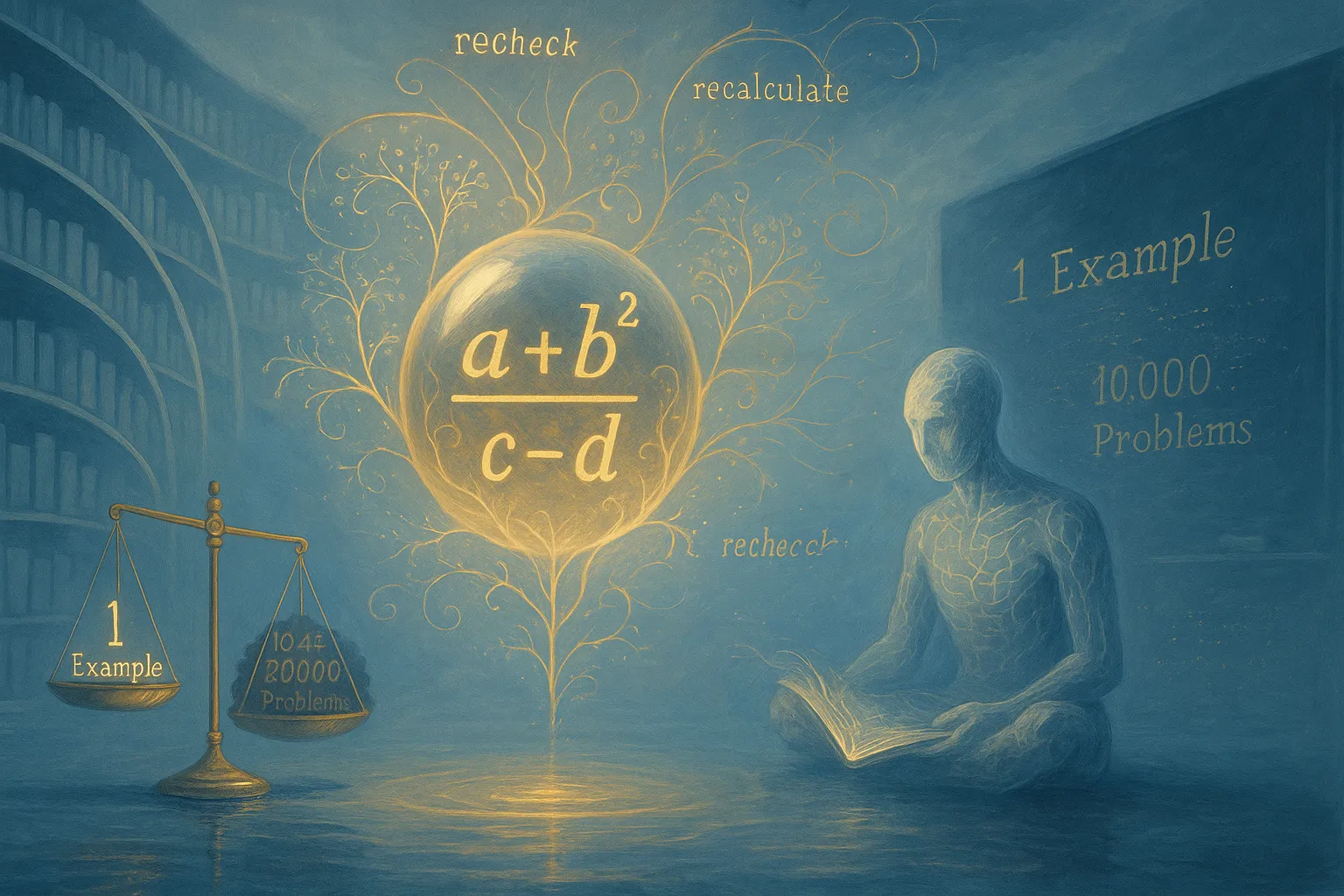Language models just proved they're quick learners. Really quick. New research shows they can master complex reasoning tasks after studying just one example - putting overachieving students everywhere to shame.
A groundbreaking study reveals that large language models can dramatically improve their reasoning abilities using reinforcement learning with a single training example. This "1-shot RLVR" approach matches or beats the performance of models trained on thousands of examples, challenging conventional wisdom about data requirements.
The results are striking. Using just one carefully chosen example, researchers improved a model's accuracy on advanced math problems from 36% to 73.6%. The improvement held across six different math benchmarks, with average accuracy doubling from 17.6% to 35.7%.
Beyond Math: Unexpected Transfer Learning
What's particularly intriguing is that these gains weren't limited to math. The one-shot wonder showed improved performance on general reasoning tasks like ARC-Easy and ARC-Challenge. It's like teaching someone to juggle oranges and discovering they've somehow learned to juggle chainsaws too.
The Right Example Makes All the Difference
The secret sauce? It turns out the example doesn't need to be particularly difficult. The best training examples are ones the model already partially understands. Think of it as building on existing knowledge rather than starting from scratch - less "teach a fish to climb a tree" and more "remind a fish how to swim better."
Even more fascinating is what happens after the model masters the training example. Rather than hitting a plateau, performance on new problems continues to improve - up to 9.9% more. The model keeps getting better even after it's perfected its response to the single training example, like a student who finally grasps calculus and suddenly gets better at physics too.
Perhaps most surprisingly, the researchers found that even when the model's output for the training example devolved into multilingual gibberish (a clear sign of overfitting), it still performed well on new problems. It's the AI equivalent of speaking in tongues while solving differential equations.
Testing Across Model Sizes
The study tested this approach across multiple models and algorithms, from the 7-billion parameter Qwen2.5-Math to smaller 1.5-billion parameter models. The improvements were consistent, though some models needed a second example to achieve stable results. Even then, two examples beats two thousand.
The researchers dug into what drives these improvements. The main factor is something called "policy gradient loss," but they found that simply encouraging the model to explore new approaches (through "entropy loss") improved performance by up to 27.4%. It's like telling an AI "just try something different" and watching it excel.
They also discovered something counterintuitive about wrong answers: slightly incorrect labels don't hurt performance much, but obviously wrong answers that still seem plausible cause more harm than completely nonsensical ones. It's as if the model knows when it's being trolled versus genuinely misled.
Implications for AI Development
This research has broad implications for AI training. Current methods often rely on massive datasets, but these findings suggest that quality trumps quantity. It's not about how many examples you have - it's about having the right ones.
The approach could be particularly valuable in fields where labeled data is scarce or expensive to obtain. Instead of gathering thousands of examples, researchers might focus on identifying and using the most effective few.
The researchers are now exploring how to extend this methodology beyond math to tasks like code generation and real-world applications where clear right answers don't exist. They're also investigating better ways to encourage diverse reasoning without overfitting.
This work challenges fundamental assumptions about how AI systems learn and improve. It suggests that large language models already possess significant latent capabilities - they just need the right nudge to unlock them. It's less about teaching new tricks and more about showing them they already know how to do them.
Open Questions and Future Research
The study concludes with several open questions about adapting this approach for tasks without clear correct answers and understanding the theoretical mechanisms behind what they call "post-saturation generalization." These questions point to fertile ground for future research.
For the AI research community, this is both exciting and humbling. All those carefully curated massive datasets might have been overkill. Sometimes, less really is more - though finding that perfect "less" might prove to be its own challenge.
Why this matters:
- We've been feeding AI systems data like they're contestants in a hot dog eating contest, when they really just needed one perfect bite
- This discovery could democratize AI development by making effective training possible with minimal data resources - though finding that perfect example might become the new challenge
Read on, my dear:










